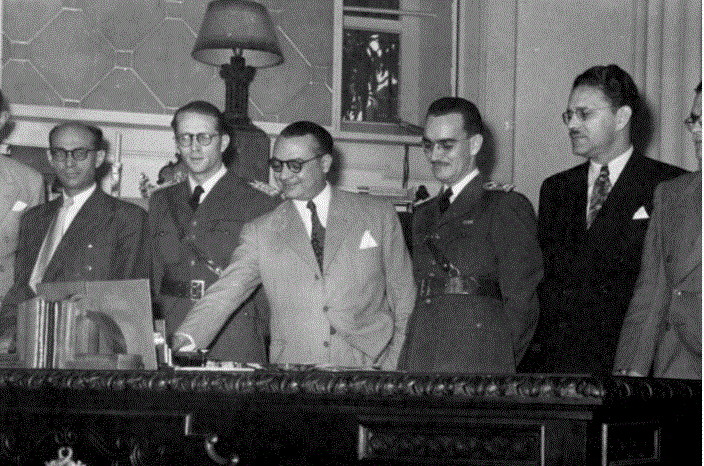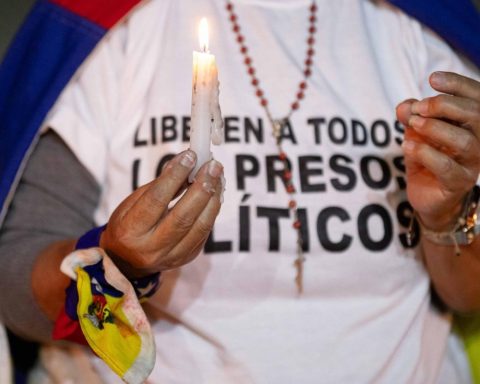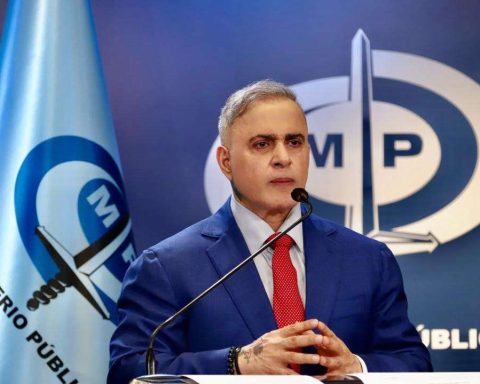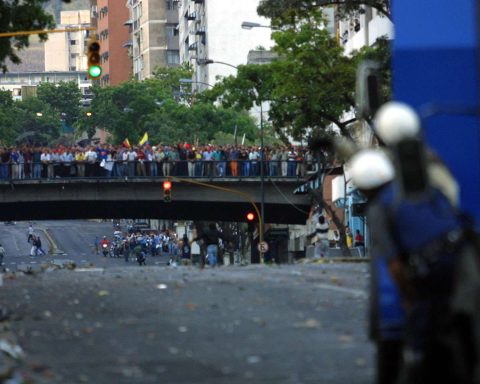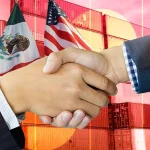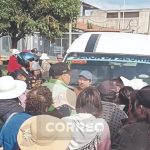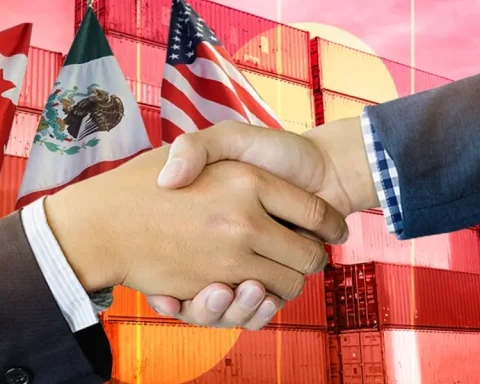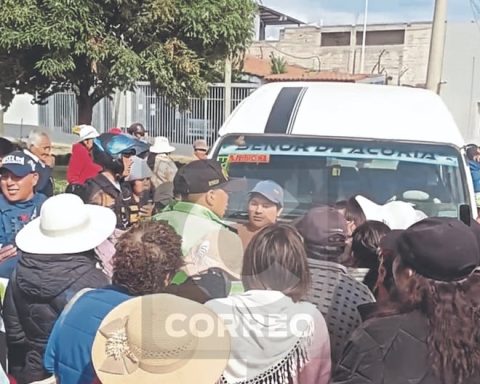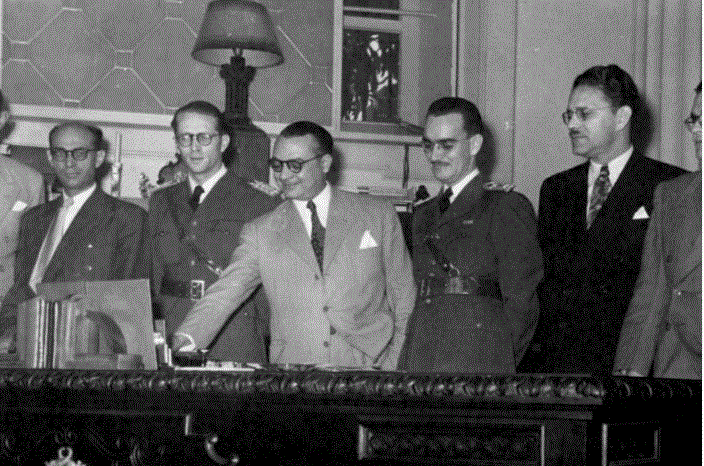
I am writing this article today, a few days before October 18, 2022, the 77th anniversary of the revolutionary and democratic movement that that day began a new stage in the republican history of Venezuela.
Until October 18, 1945, popular sovereignty was kidnapped because we Venezuelans were not recognized the right to elect our rulers through universal, direct and secret suffrage, but rather through a third-tier mechanism. Indeed, the constitutional reform approved that year of 1945, under the government of General Isaías Medina Angarita, denied the popular election of the President of the Republic and ratified that he would be elected by “the Chambers gathered in Congress” (article 100); senators would continue to be elected by “the Legislative Assembly of each state” (article 60), only direct popular election was provided for the Chamber of Deputies (article 56), and women were hardly recognized “the right to active suffrage and liability for the formation of Municipal Councils” (article 14, letter b).
The textual quotations of the previous constitutional articles demonstrate and prove that the democratization of power was rejected, that is, that the people, using the exercise of the universal and direct vote, decided to form public powers, an essential element of democracy, as it is established in article 3 of the Inter-American Democratic Charter. The great Spanish jurist Manuel García Pelayo says that in the face of “the technical impossibility of direct democracy, that is, of Rousseau’s thesis, there is a genuinely democratic concept of those who have been appointed by popular election as opposed to other types of heads of state not elected directly by the people, but indirectly, through Parliament”; then the people exercise their power through universal and direct suffrage (Manuel García Pelayo. Comparative Constitutional Law. Sixth edition. 1961. Pgs. 177,180 and 184).
During the post-gomecista decade, it is true that freedom of expression of political opinions was allowed, as well as militancy in the political parties that were founded and acted without restrictions (more favorably during the government of General Isaías Medina Angarita than during the government of General Eleazar López Contreras), but the wall that prevented the people from exercising their electoral sovereignty and condemned them to be spectators and not actors in such a fundamental issue as the choice of their leaders continued to stand. It was “an ambiguous decade”, as the Panamanian writer and diplomat Diogenes de la Rosa called it.
The situation changed with the triumph of the civic-military movement of October 18, 1945, which rescued the usurped popular sovereignty, and split the history of Venezuela in two. Alberto Carnevali makes this semblance of the great date: “…And with this essential objective -to return to the people its sovereignty- the personalist government of General Medina was overthrown on October 18, 1945… it was and will be destined to restore forever the democratic physiognomy of Venezuela, and to profoundly transform its economic and social structure…” (Alberto Carnevali. Life and political action. Centaur Editions. Avila Art Printers. SA Caracas/Venezuela/1980. p. 125). There is the universal, direct and secret suffrage: no one has dared to repeal it.
The Marxist historian Manuel Caballero, political opponent of the Democratic Action governments, maintains that “October 18 marks the entry of Venezuela into mass society to show the revolutionary character of the process triggered by the granting of the universal vote, it is necessary to say that he pointed out the deepest element of rupture with the ancien régime”. Ramón J. Velásquez has recalled that, before October 18, “the fundamental claim of the country in this decade of the 1940s was the universal, direct and secret vote for the election of public powers” and pointed to the “oligarchic origin of the successive regimes that had exercised power.
For the historian Germán Carrera Damas, this exercise of popular sovereignty, achieved with the October Revolution, means “the most radical sociopolitical transformation experienced by Venezuelan society, since the rupture of the colonial nexus” (Germán Carrera Damas, historical romulus/Alfa Publishing House/2013. p. 151).
Another prominent historian, Tomás Straka, agrees with Carrera Damas’s opinion: “With the universal, secret and direct vote that the Revolutionary Government Junta established in 1946, the structure of the Venezuelan republic underwent its most important transformation since its foundation. Neither federalism, which was never really lived; nor did the triumph of the ‘anti-republic’ during the long era of caudillista dominance (between 1870 and 1935) represent such a deep mutation in the rules of the game… That is, a republic led by an elite that aspired to implement liberal reforms, but whose origin and exercise of power was not in the approval of the majority” (Tomás Straka. Prodavinci, 10/18/20, “The revolution of the vote and October 18, 1945”).
Marco Tulio Bruni Celli affirms: “…October 18 was the turning point, the moment that divided the Venezuelan history of the 20th century… Admirers and detractors agree that October 18, 1945 is certainly the most transcendental historical event in the Venezuelan history of the 20th century” (Marco Tulio Bruni Celli. On October 18, 1945 / Graphic workshops Lauki/2014. Pages 33 and 47).
Cleverly, in your book The Adeco Triennium (1945-1948) and the conquests of citizenship (page 96), the independent writer Rafael Arráiz Lucca says that “it is surprising to hear repeated ad nauseam, in a somewhat mechanical and thoughtless way, that the coup d’état of October 18, 1945 stopped a democratic process in progress, that it precipitated it , when it is evident that without direct, universal and secret elections, it would be difficult to speak of the validity of a democracy”.
With strict adherence to historical truth, it can be affirmed that, thanks to October 18, 1945, with the universal, direct and secret vote, established by the Electoral Statute Decree of March 15, 1946 issued by the Revolutionary Government Junta Presided over by Rómulo Betancourt, and later constitutionalized in the Magna Carta of 1947, Venezuela went from a political regime of freedoms to a truly democratic political regime. Freedom is not the same as democracy, the first is part of the second, they are two concepts that are not the same, but complementary. The Constitution of 1830, sanctioned by the Constituent Congress of Valencia on September 22 of that year, established a census suffrage (article 14), and, on the other hand, as Dr. Allan R. Brewer-Carias points out, “although ratified in the text of the 1864 Constitution the popular, universal and secret vote, which had already been enshrined in the 1858 text, the exercise of the same became nugatory, since between 80% and 90% of the population was illiterate and the law required read and write for the exercise of suffrage, so that participation in the political process was limited to a privileged minority, identified with the new oligarchy of commercial and landed wealth” (Allan R. Brewer-Carias. The Constitutions of Venezuela. 1985. Preliminary Study. Page 63).
Although the political conquest of universal and direct suffrage is enough for the historical justification of the October Revolution of 1945, it is also necessary to mention notable economic and social achievements of government action. As the crow flies, I’ll jot down a few.
In terms of oil policy, Manuel Pérez Guerrero specifies (in a letter that, while in exile, he addressed to Rómulo Gallegos on February 10, 1949, later published in a brochure, where he summarizes the achievements of the two governments, the de facto and the constitutional one, which led the country since the October Revolution) that “a strong increase in the fiscal resources of the State was achieved through the increase in its participation in its oil wealth”, first due to the extraordinary tax decreed on December 31, 1945 and then by the reform of the Income Tax Law, enacted in November 1948. It was the famous “fifty-fifty”, according to which the net income of the concession companies could not be higher than the State’s participation. As a consequence of these measures, Manuel Pérez Guerrero reports that the fiscal income generated “increased violently”, to the point that “the 1947 figure represents more than three times that of 1944”. Wrongly, some have claimed that the formula of the “fifty-fifty” was the work of the government of Medina Angarita, which was refuted by the then deputy Juan Pablo Pérez Alfonzo in his saved vote in the approval of the Hydrocarbons Law of 1943, where he points out that taxes were increased, but “it is not reached but partially what in reason and justice should be claimed. This is ratified by the economist Eduardo Mayobre, in his biography of Pérez Alfonzo, recalling that in that saved vote “it is objected that the distribution of the income obtained by the producing companies could not be achieved in 50% for the State and 50% for the companies”. Teodoro Petkoff has also written that the fifty-fifty was “established during the management of the Revolutionary Government Junta presided over by Rómulo Betancourt” (As it is 03-25-2010). Among other aspects of the oil policy, I limit myself to highlighting that of “no more concessions” because the existing ones rather exceeded those required to maintain production at an adequate level.
In his message presented on February 12, 1948 to the newly installed National Congress, three days before transferring the command to the constitutional president Rómulo Gallegos, Rómulo Betancourt lists what has been done for the diversification of its own economy “because ruin and colonialism are the obligatory final goal of the peoples whose destiny is linked exclusively to a mining industry, manipulated by foreign capital”; the achievements in the defense and valorization of the country’s human capital (in health, the remarkable fight against malaria, internationally recognized; in education, the increase in enrollment at all levels and the anti-literacy work; in social security, etc); the implementation of the Agrarian Reform; the “prodigious” development of the union movement (between 1936-1941, 522 unions were registered with the Ministry of Labor, while from October 18, 1945 to December 31, 1947, 700 unions were registered).
This is as far as I will go, if I go further, I would lengthen this article that I am writing on the occasion of this 77th anniversary of October 18, 1945, a date that changed history.
